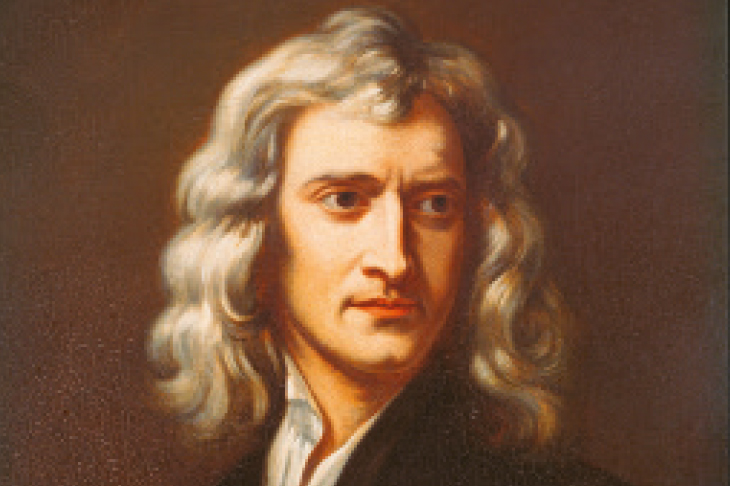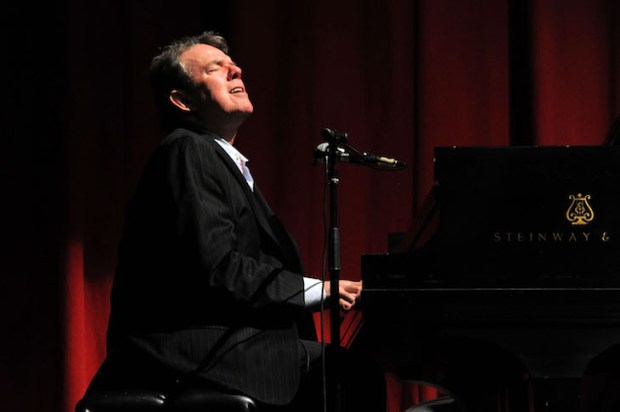John Calvin believed that human nature was a ‘permanent factory of idols’; the mind conceived them, and the hand gave them birth. Isaac Newton acquired a copy of Calvin’s Institutes when he went up to Trinity College, Cambridge in 1661 as a teenager. By the time he was a mature man, however, Newton’s determined effort to strip the mind of superstitious superfluities had far outstripped the austere predestinarian of Geneva. As a Fellow of Trinity, and Lucasian Professor of Mathematics from 1669 onwards, Newton was obliged to subscribe to the Thirty-nine Articles of the Church of England. It was noted that, most unusually for a Cambridge academic at this period, he refused to take Holy Orders. In addition to his public work as a mathematician and physicist, Newton undertook work which was, perforce, utterly secret. This was his re-examination of Christian doctrine from its historical foundations. Had this work been made public, he would have been forced to resign all his public and academic positions. For he had come to the conclusion, by the time he reached maturity, that the central doctrines of Christianity, as outlined in the Creeds and the Articles, were monstrous idolatries, inventions, Satanic perversions of true religion. Above all, he excoriated Athanasius for persuading the Council of Nicaea to adopt the plainly, as Newton would see it, idolatrous view that Jesus had been the divine Second Person of the Trinity.
Rob Iliffe, professor of history at Oxford, begins his study of Newton’s religious thought by saying, ‘Newton’s extensive writings on the Trinitarian corruption of Christianity are among the most daring works of any writer in the early modern period, and they would merit careful study even if they had not been composed by the author of the Principia.’ Presumably, Iliffe means that the writings are ‘daring’ in their conclusions, as Newton was not so ‘daring’ as to publish them — which would have spelt personal ruin. All his work on gravity, cosmology, mathematics, the colour spectrum, and so on would have been conducted, not in the spacious setting of Trinity, but in a garret, and it is unlikely that the world would have heeded them so readily had they not come from the Lucasian professor. So obsessed was Newton by his religious views and writings, however, that he longed to get out of Cambridge, and settle in London, if only a convenient post could be found. But when Locke wangled him the Mastership of the Charterhouse, at £200 p.a. with a coach, this was not a sufficient lure.
We are all hugely in Rob Iliffe’s debt. Few of us would have the skill, in mathematics or philosophy or divinity, nor the patience, to do what he has done, which is read through the huge extent of Newton’s obsessive theological writings. He, together with a team of industrious scholars, has helped to put online the writings which had hitherto been visible only in academic libraries, such as New College, Oxford, King’s College, Cambridge, and the Fitz-william Museum. Most of this stuff had either been totally forgotten, or never even read, until the last 15 years; so that, as well as being a punctilious, painstaking historical work of the utmost density, this book also constitutes one of the most sensational ‘scoops’ of recent times.
What emerges is something which will fascinate any student of Newton and the 17th century, but which will also give any honest Orthodox Christian pause. On the one hand, Newton emerges from these pages as a crackpot, who believed himself to be one of the remnant of true believers, mentioned in the book of the Apocalypse, who would be resurrected to rule over mortals in the Millennium. On the other, his was one of the most acute, most searching, of all human intelligences. He had researched every aspect of the history of Catholic doctrine, and his account of how the Creeds evolved, though laced with the violent anti-Catholic prejudice of their times and coloured by apocalyptic fervour, would be broadly in step with the mainstream of scholarship since the 19th century: namely that full-blown doctrinal Trinitarianism can only be found in the New Testament if the reader, consciously or unconsciously, puts it there.
Iliffe demands from his reader a very full concentration on the knotty issues which possessed the minds of Desert Fathers, Arians, and the Fathers of the Church, the Cambridge Platonists, the materialists who followed Hobbes, as well as the saner and more congenial thought-processes of Locke and Hooke. At times, the reader is reminded of the fact that for much of his long life, Newton was the contemporary of Swift; and it is all that one can do to remind oneself that one is reading an academic work, rather than having strayed into the pages of Gulliver’s Travels. It is not altogether surprising, in the final chapter, when Locke, Pepys and others begin to notice that Newton’s outbursts of paranoia went beyond the eccentric. The Dutch natural philosopher Christian Huygens noted that Newton, during a conversation with the Archbishop of Canterbury, had betrayed signs of madness, and that his friends had led him away and kept him under house arrest for a considerable period in 1694. Sadly, we are not told how the conversation went. He recovered his wits, and lived to his mid-eighties. This is a book which will take you several weeks to read, but the journey is worth it.
Got something to add? Join the discussion and comment below.
Get 10 issues for just $10
Subscribe to The Spectator Australia today for the next 10 magazine issues, plus full online access, for just $10.
You might disagree with half of it, but you’ll enjoy reading all of it. Try your first month for free, then just $2 a week for the remainder of your first year.














Comments
Don't miss out
Join the conversation with other Spectator Australia readers. Subscribe to leave a comment.
SUBSCRIBEAlready a subscriber? Log in